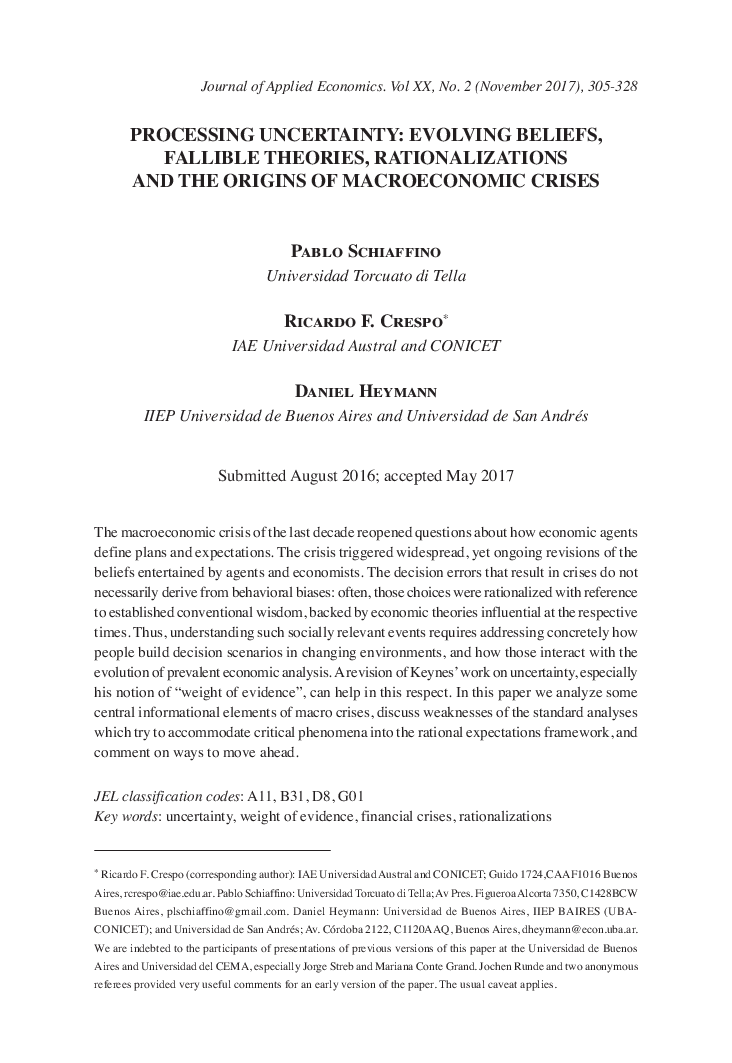| Article ID | Journal | Published Year | Pages | File Type |
|---|---|---|---|---|
| 7356094 | Journal of Applied Economics | 2017 | 24 Pages |
Abstract
The macroeconomic crisis of the last decade reopened questions about how economic agents define plans and expectations. The crisis triggered widespread, yet ongoing revisions of the beliefs entertained by agents and economists. The decision errors that result in crises do not necessarily derive from behavioral biases: often, those choices were rationalized with reference to established conventional wisdom, backed by economic theories influential at the respective times. Thus, understanding such socially relevant events requires addressing concretely how people build decision scenarios in changing environments, and how those interact with the evolution of prevalent economic analysis. A revision of Keynes' work on uncertainty, especially his notion of “weight of evidence”, can help in this respect. In this paper we analyze some central informational elements of macro crises, discuss weaknesses of the standard analyses which try to accommodate critical phenomena into the rational expectations framework, and comment on ways to move ahead.
Related Topics
Social Sciences and Humanities
Economics, Econometrics and Finance
Economics and Econometrics
Authors
Pablo Schiaffino, Ricardo F. Crespo, Daniel Heymann,
